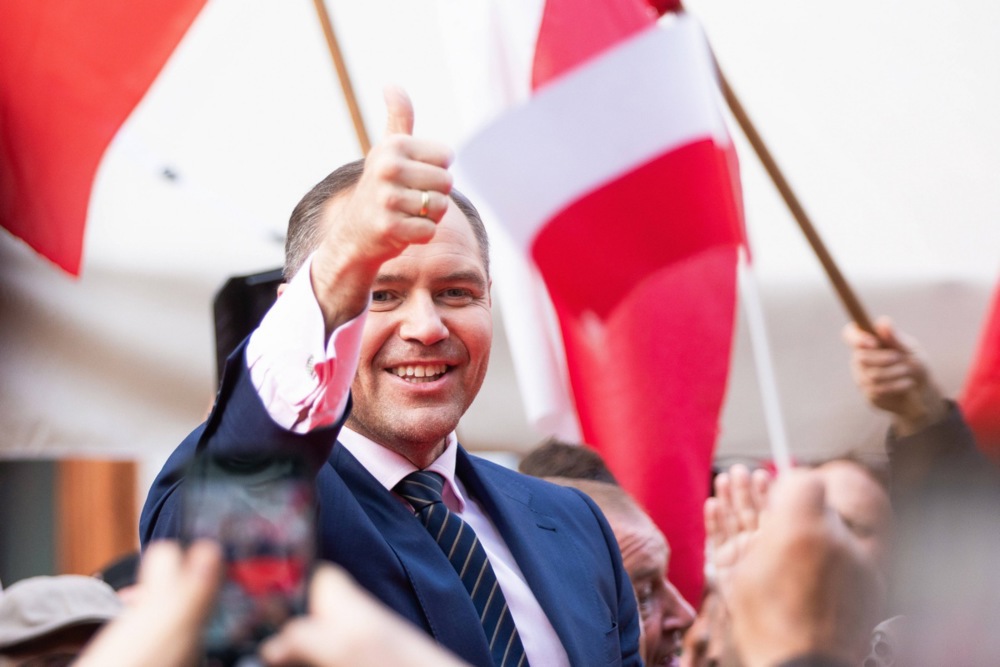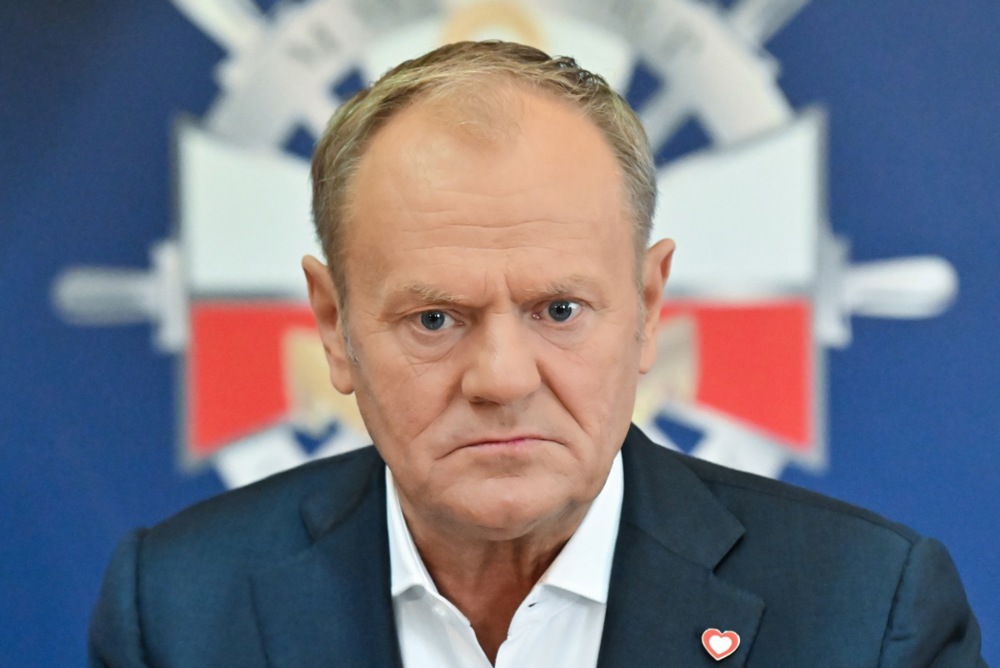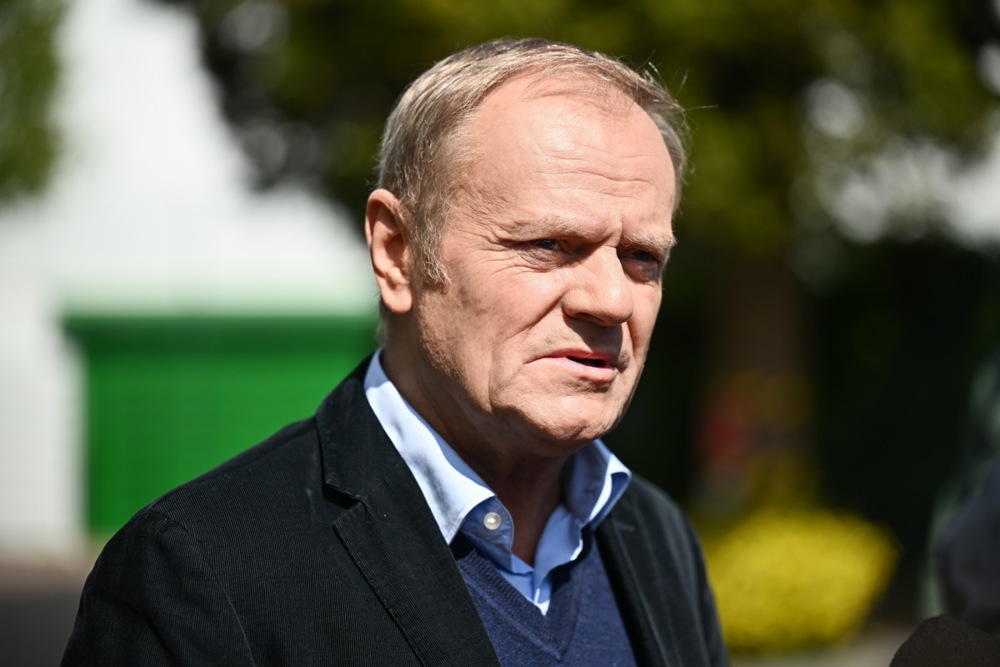The Polish People’s Party (PSL), Poland’s ruling centre-left coalition member, has polled its members on whether it should consider teaming up with the current opposition Conservatives (PiS) and the Confederation party.
Without them, Prime Minister Donald Tusk’s majority would collapse.
The PiS candidate Karol Nawrocki narrowly defeated Rafał Trzaskowski from Tusk’s Civic Coalition (KO) in the presidential election of June 1.
That meant the PiS had maintained an ally in the presidential palace in potentially blocking legislation and influencing senior appointments, as outgoing President Andrzej Duda is also PiS aligned.
Tusk’s coalition, which holds 243 out of 460 parliamentary seats, was composed of his KO (156 seats), the Left party (23 seats) and the Third Way alliance made up of of Poland 2050 and the PSL parties, which has 64 seats.
The PSL, which has a traditionally rural base and was Conservative on social issues such as abortion and LGBT rights, holds 32 of the Third Way’s 64 MPs and without them Tusk’s majority would collapse.
The party’s leadership in the aftermath of the election surveyed its members asking them if they would be willing to see the PSL ally itself with PiS (194 seats) and the right wing Confederation party (18 seats) to form an alternative government with the PSL leader and current defence minister Władysław Kosiniak-Kamysz as PM.
The idea of such a government was not new. In the immediate aftermath of the 2023 parliamentary election, the PiS that had topped the poll with 35 per cent of the vote and 194 seats in parliament, had tempted the PSL leader Kosiniak-Kamysz to enter coalition with it and the Confederation party.
That offer was firmly rebuffed since the PSL was fresh from a successful alliance with Poland 2050 in the Third Way alliance, having polled 14 per cent in those parliamentary elections.
The issue had now been resurrected in the aftermath of disappointing European parliamentary elections in 2024. In that vote, Third Way polled just under 7 per cent.
On June 6 this year, PSL’s spokesman Janusz Motyka tried to calm fears of the party leaving Tusk’s coalition by claiming that, according to the survey in question, around 70 per cent of the party’s membership wanted it to remain in the present centre-left coalition.
Nevertheless, given that since Poland’s return to democracy in 1989 PSL had only worked with parties of the Left or the centre and never with the political Right, the survey about a coalition with PiS raised eyebrows. It was to many interpreted as a PSL shot across the bows of Tusk’s party, warning that the PSL and its interests should not be taken for granted.
Kosiniak-Kamysz on June 5 had stood shoulder to shoulder with other coalition leaders, telling reporters that they had agreed on the way forward and would be backing the government in a confidence vote on June 11 that had been triggered by Tusk.
After the coalition’s summit, Kosiniak-Kamysz dismissed suggestions of internal collapse, saying that “there was no dispute” and that the discussion focused around strategy, communications and project selection, although no actual policy announcements were made.
“Our government thinks it is so great that it doesn’t need communication for anything,” wrote Third Way’s deputy education minister Joanna Mucha in a Facebook post criticising Tusk’s party for the presidential election defeat.
Responding to criticism over the way the government had communicated with voters, coalition leaders announced that the administration would appoint an official government spokesman for the first time since taking office 18 months ago and that a major government reshuffle was being planned.
“We will appoint a government spokesperson and there will be a completely new centre responsible for shaping the government’s information policy,” said Speaker of Parliament and leader of the Poland 2050 party Szymon Hołownia. He also announced the formation of a “coalition council that will meet weekly to align strategy and priorities”.
The leader of the Left party Włodzimierz Czarzasty promised that a government reshuffle would take place within six weeks . He said the timeframe was because major changes were being considered with regard to the number of ministries and ministers in the government.
Latest opinion polls indicated that Tusk’s administration has become unpopular, with a late May survey by State research agency CBOS finding 32 per cent of Poles held a positive view of the government while 44 per cent had a negative one.





